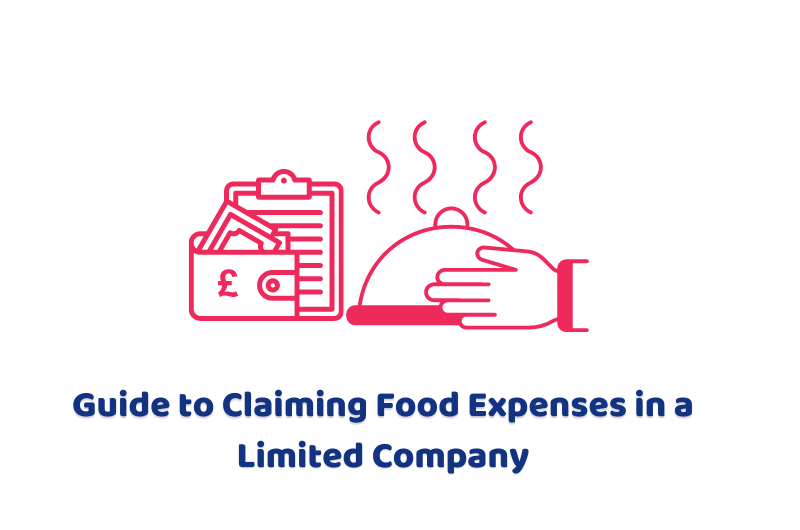Claiming food expenses in a limited company can be quite different from that of a sole trader. Similarly, what meal expenses qualify for a refund is also as ambiguous as the other business expenses or even more.
HMRC has not defined clearly the meals deductible as business expenses. They have just described some criteria for these fully and partially deductible business expenses. This is the reason why many people ask about the food and drink expenses they can claim ultimately.
In this blog, we will discuss the meals’ business expenses deductible and how to report them. Moreover, we will discuss the meal exemption not qualifying for the refund. So, let’s dive in!
AccountingFirms offers you tech-driven and professional accounting and bookkeeping services where you can find solutions to all your financial needs. Contact us now!
What are Food & Drink or Meal Expenses?
In most cases, the food and drink or meal expenses accompany the business travel expenses. Travel expenses are deductible expenses and can be claimed back from the HMRC.
On the other hand, if you are visiting a client for a business meeting or going to another place to attend a conference or for another business purpose, you can also claim business expenses on your expenses incurred on meals.
The surprising news is that your expenses on food and drinks are not without exceptions or restrictions. HMRC applies some strict criteria on these expenses to allow you to claim for your business.
These expenses are also known as subsistence expenses. These expenses are necessary expenses while travelling for exclusively business purposes.
Claiming Food And Drink expenses
The following types of expenses are not legitimate food & drink business expenses. For example, if a person is travelling (commuting) from his home to the office daily and buys some snacks on the way. On the other hand, if a person is travelling to another place for a short business trip and he buys lunch for himself more than a reasonable amount or cost. For example, if you order or buy a lavish lunch for yourself, then these are not allowable business expenses.
Similarly, if you are out with your client for the purpose of entertaining him and having lunch or dinner together, they are also not allowable food and drink business expenses. Another type of meal expense not considered as the food and drink expenses are the ones incurred on a temporary visit to a workplace. For example, if an employee had to visit the place of a client for 24 months but the time is less than 40% of the total working time, then they are also not legitimate business expenses.
Another business expense not considered to be reclaimed is the one when you visit your clients more often and it is part of your job. One key factor to clear all the ambiguity is to consider only those expenses where you have to travel or have meals when you are doing business work out of the way or occasionally.
Claiming Food Expenses in a Limited Company
You can claim legitimate or eligible meal expenses on your tax returns by adding them to it. HMRC would not pay you back these expenses. Instead, they will charge you less corporation tax on your tax returns.
If the employer receives meal vouchers outside the workplace, they must be mentioned on form P11D. Deduct and pay for the National Insurance Contributions (NICs). P11D form is not required unless the costs have been reimbursed and you’re paying tax on all the employee benefits through your payroll.
Similarly, an employee can claim back those costs from their employer if he is on a business trip and has worked in a ‘temporary’ place for more than 24 months. This is specifically for those employees who have dedicated less than 40% of their total time for the 24 months.
If they have worked for more than 40% of the time, they will be counted as a permanent employee and won’t claim back any expenses. One important thing to remember is that you must keep safe all the food and drink receipts with you. So that when HMRC audits or inquiries about business expenses, you have proof of your legitimate claim.
The Bottom Line
Finally, we can say that claiming food & drink expenses in a limited company can lower the corporate tax burden to a reasonable amount, if not considered. Moreover, the employees can report these meal expenses to their employer who will reimburse the incurred costs to them. Then, the employer can claim them by paying less as corporation tax on their profits on their annual tax returns.
The entertaining, marketing or commuting expenses cannot be considered legitimate business expenses. However, if you are providing these costs as part of your business travel, then they are allowed up to a reasonable amount. The meal on overnight stays, free or subsidised food at the canteen and regular commute to another workplace do not require the expenses to be mentioned on the tax returns.
Let’s talk to our accredited accountants and professional tax experts to sort out all your tax problems in one go at the AccountingFirms. Don’t hesitate to give us a call or send us a message.
Disclaimer: All the information provided in this article on claiming food expenses in a limited company, including all the texts and graphics, is general in nature. It does not intend to disregard any of the professional advice.

